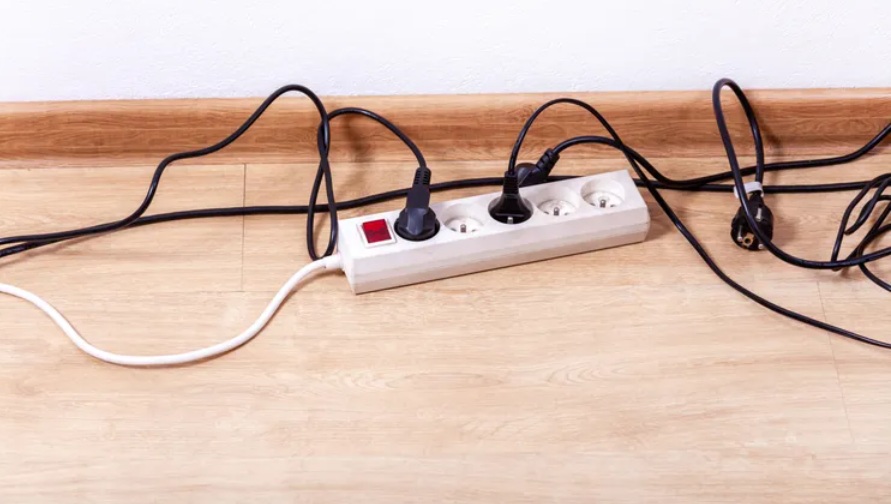If you've ever plugged a refrigerator, heater, or electric vehicle charger into an extension cord, consider yourself lucky if nothing bad has happened. According to electrical experts, these practices can cause overloads, short circuits, and even life-threatening situations.
Here are 6 instances where you should avoid using extension cords, based on advice from experienced electricians Tim Hodnicki from Electrical Experts and Ryan Gregor, owner and master electrician at RCG Electrical (USA).
High-powered appliances
Microwaves, refrigerators, dryers, air conditioners, and heaters all consume significant amounts of power. Using substandard extension cords to power these appliances can overload the circuit. "Overloading can cause wires to overheat, damaging the insulation and potentially leading to fires or electric shocks," Hodnicki warns.
If you absolutely must use an extension cord, choose one with a high gauge and amperage rating designed for heavy loads, and only use it for short periods.
 |
Illustrative photo: Spruce |
Illustrative photo: Spruce
Outdoor or damp environments
Most standard extension cords are not designed for outdoor use. Even if it's not raining, heat and UV rays can damage the insulation.
"I've replaced many extension cords after just one season of outdoor use," Gregor says. Hodnicki also emphasizes that temperature and humidity fluctuations can break down the outer protective layer, causing electrical leakage or short circuits.
For outdoor use, opt for specialized weather-resistant extension cords.
Placement under rugs or furniture
Extension cords can heat up during operation. Covering them with rugs, chairs, or cabinets reduces heat dissipation, leading to overheating and increasing the risk of fire.
Both electricians warn that placing extension cords under rugs or furniture can wear down the insulation over time. If the wire becomes exposed without the user's knowledge, the risk of electric shock or fire is very high.
Place extension cords in well-ventilated, easily visible areas. Inspect them regularly, and if you notice unusual heat, disconnect them immediately.
Charging electric scooters or vehicles outdoors
Vehicles like electric motorcycles, scooters, or bicycles draw a high current. Using an inadequate extension cord for charging can overheat the wires, damage the charger, or even cause a fire.
"Many fires caused by electric vehicle charging stem from using low-quality or incorrect extension cords," Hodnicki shares.
Electricians recommend always charging directly from a standard outlet or using a high-power extension cord with electrical safety certification.
Extending cords too far
Connecting multiple extension cords to extend the power supply distance can lead to voltage drops, increased resistance, and exceeding the allowable limits.
"Connecting one extension cord to another to extend its reach will increase resistance and voltage drop, easily exceeding the amperage rating," Hodnicki says. "I recommend using a single cord of appropriate length and size, or installing a proper outlet for long-term use."
Using extension cords as permanent wiring
Many households leave extension cords running around the house to power TVs, computers, and electric stoves for extended periods. This is improper use.
"Extension cords should only be used temporarily," Hodnicki says. "If you frequently rely on extension cords for everyday appliances, it's a sign that your home's electrical system needs an upgrade."
Nhat Minh (Spruce)












